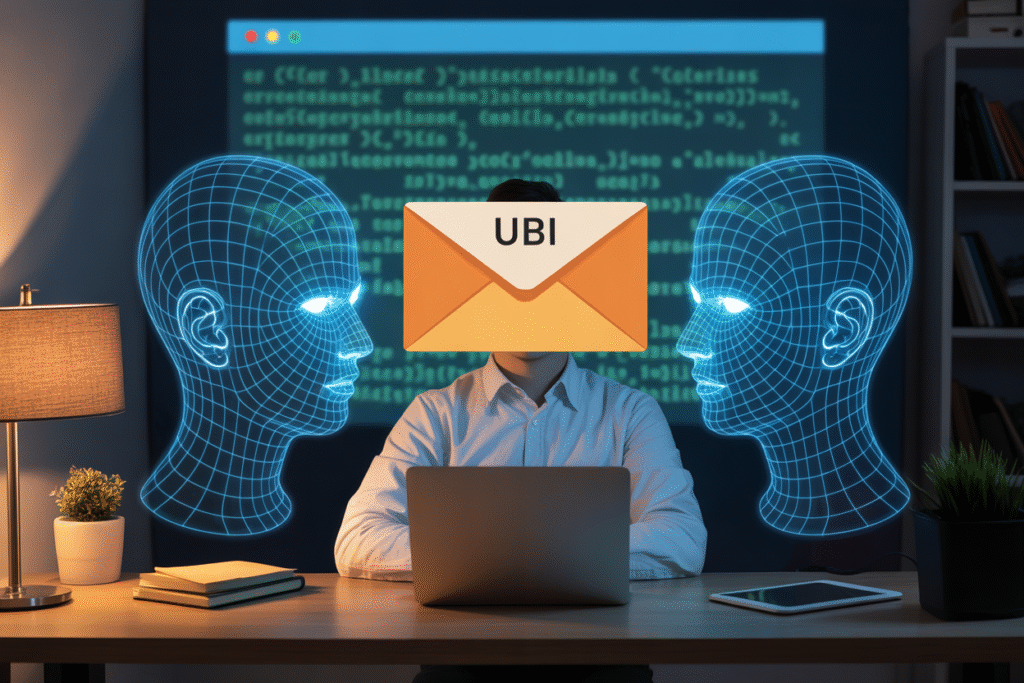Fresh debates over AI ethics, job doom, and privacy lockdowns are erupting—here’s the viral recap you missed in the last three hours.
Three hours is all it took for AI ethics to explode again. One creator warned deepfakes will erase reality, another envisioned universal basic income pacifying displaced workers, and a third whispered that encrypted AI is our last shield against every corporation—plus Big Brother. Let’s unpack these interlocking controversies.
When Reality Becomes a Remix
Picture waking up to your own face in a crime-scene video you’ve never seen. That’s the specter Tara laid out. Using only a few keystrokes, scammers can swap heads onto explicit footage or drum up fake terrorist attacks. The stakes? Wrongful imprisonments, manipulated elections, gas-lighted relationships.
The argument splits observers into two noisy camps. Technologists insist on deepfake watermarks and blockchain verification safeguards. Critics call that digital duct tape on a tidal wave. Meanwhile, content creators fear their jobs will vanish when AI can spin award-winning documentaries overnight—only none of them true.
What keeps philosophers awake is the epistemic crisis: If everything is potentially synthetic, how do we agree on shared facts? Tara’s post isn’t fear-mongering—it’s blueprints for chaos already under construction.
Universal Basic Income—Universal Panic?
Susmit shared a cinematic short that looked like Black Mirror’s next trailer. It opens with unemployment charts skyrocketing as AI automates trucking, coding, and radiology by 2029. Then comes the soothing narrator promising monthly stipends—money for breathing—funded by sky-high taxes on mega-AI conglomerates.
But the catch is quieter: accepting cash means consenting to biometric surveillance. Palantir-style dashboards track where you spend every dime, supposedly to prevent fraud. Critics dub this “UBI with ankle monitors.”
Supporters argue mass UBI could slash poverty and let humans pursue art or caregiving. Skeptics see a velvet cage: guaranteed groceries, zero upward mobility, and a feedback loop where algorithms decide what you’re allowed to dream about.
Encryption: The Invisible Firewall
Shamex spotlighted Secret Network’s encrypted AI. Think ChatGPT that never leaks your prompts to advertisers or nation-state spies. Their demo shows AI agents analyzing personal health data without ever revealing raw information—even to the engineers running the system.
Innovative? Absolutely. Cheap? Not yet. Running computations on encrypted data costs roughly 10× more energy, slowing adoption. Regulators also squirm: if AI decisions are shielded, how do you audit for bias or illegal content?
Still, for whistle-blowers, abuse survivors, or dissidents living under autocratic regimes, confidential AI isn’t luxury—it’s oxygen. That ethical tug-of-war is silently shaping open-source road maps worldwide.
The Tangled Tomorrow We Can Still Shape
These three threads aren’t isolated—they’re Ultima-style power cables sparking against each other. Deepfakes erode public trust, nudging societies toward surveillance appeasement. UBI placates unrest but hands keys to algorithmic gatekeepers. Encryption offers escape yet risks shielding the very manipulation it seeks to prevent.
Policy makers, weary of 2024’s endless hearings, now chase real-time policy patches. Europe’s AI Act revision added instant deepfake takedown mandates; California floated a “UBI Opt-out” bill that lets citizens reject stipends—and the data tracking attached.
We’re left balancing on a seesaw: innovate recklessly and sink into misinformation hell, or over-regulate and strangle human creativity. The margin for error shrinks daily, yet the choice remains ours—for now.


